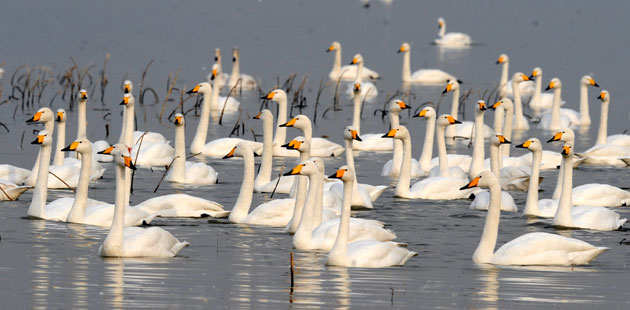SW China residents insured against animal attacks
Updated: 2011-12-28 14:33
(Xinhua)
|
|||||||||||
KUNMING - Residents who have suffered animal attacks in the southwestern region of Xishuangbanna this year will receive 9 million yuan ($1.43 million) in compensation from a government-funded insurance project, local authorities said Wednesday.
This year's compensation more than doubled the 4 million yuan offered in 2010, as the government in Xishuangbanna Dai autonomous prefecture of Yunnan province paid more for insurance in 2011 to make sure it would cover all state-protected wild animals in the region, said Chen Yong, head of the prefecture's wild animal conservation station.
The insurer has already paid villagers 4.57 million yuan and it is still processing the rest of the claims, Chen said.
Villagers in Xishuangbanna, a tropical region that harbors much of the biodiversity in China and is home to a quarter of the country's wild animal species, have long been bothered by wild animal attacks.
The prefecture reported more than 160,000 animal attacks between 1991 and 2010, in which 39 people were killed and another 187 injured. Villagers also lost 200 million kilograms of crops and over 5,157 heads of livestock in those attacks.
"The attackers are usually wild elephants, venomous snakes and black bears. Their victims can be humans, crops or domestic animals," Chen said.
The local government used to compensate villagers before it signed a contract with China Pacific Insurance Co in November 2009, allowing the private insurer to cover some of the villagers' losses.
Through the insurance project, villagers can get more in compensation and the local government's workload lessens, said Chen.
Last year, insurance only covered incidents involving endangered Asian elephants, but it was extended to include all state-protected wild animals this year.
Xishuangbanna is home to over 250 wild Asian elephants, about 90 percent of the country's total population of the endangered species.
Hot Topics
HIV/AIDS, Egypt protest, Thanksgiving, climate change, global economic recovery, home prices, high-speed railways, school bus safety, Libya situation, Weekly photos
Editor's Picks

|

|

|

|

|

|







